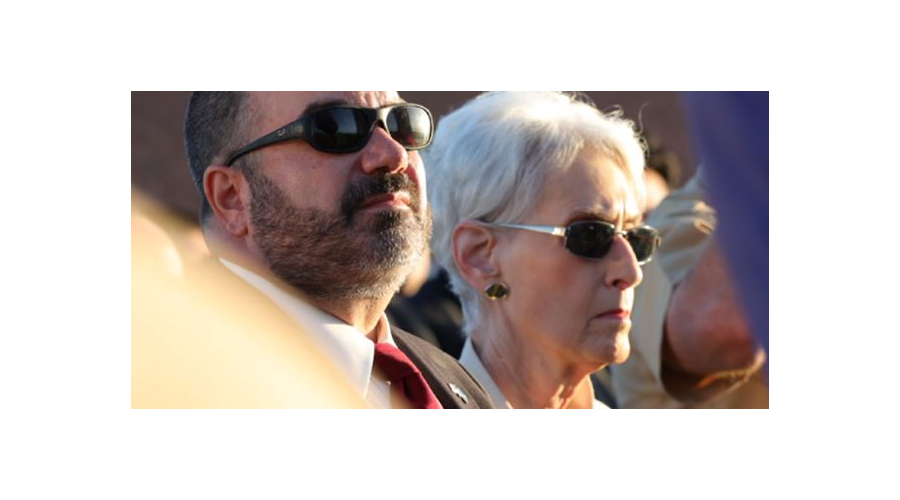7 August 2022
EIGHTY years ago today (August 7th 2022), thousands of U.S. Marines landed here on Guadalcanal and on the islands of Tulagi and Gavutu-Tanambogo.
According to visiting US Deputy Secretary of State Wendy Sherman, it was the first major Allied land offensive in the Pacific theatre, and a proving ground for the United States Marine Corps’ new methods of amphibious warfare.
“With the benefit of hindsight, it is easy for us gathered here today to recognize the Battle of Guadalcanal as a turning point in the Pacific theatre, and indeed in the Second World War.
“But for the Marines patrolling the dense and humid jungle, who had to be wary of both enemy snipers and crippling disease… for the sailors who fought terrifying night battles in the seas around these islands… for the airmen who engaged in countless dogfights in the skies above… the future was unknown and unknowable,” Deputy Secretary Sherman said.
Deputy Secretary Sherman is leading the US delegation to commemorate the 80th anniversary of the Battle of Guadalcanal held at Skyline Ridge. Representatives of the governments and armed forces of Australia, New Zealand, and Japan and other guests were also part of the event.
Deputy Secretary Sherman said in so many ways, their world had already been turned upside down.
“They had put their ordinary lives aside. They dropped out of school, closed down their shops, quit their jobs, kissed their children good-bye.
“At a time when many Americans never left their hometowns—let alone the country—new recruits boarded ships for places thousands of miles away, some of which they had never even heard of before the war.
“And in many of those places—like here in Solomon Islands—civilians saw their world upended as well, as bombs and mortars fell on their towns and villages, destroying the lives of innocents,” she said.
She said in over more than six months of fighting, some 1,600 Allied troops were killed. More than 4,000 were wounded, and thousands more died from disease. Among Imperial Japanese forces, an estimated 24,000 died. And no one—no one—can say for certain how many Solomon Islanders lost their lives when their home became a battlefield.
She spoke of her father Mal Sherman who was among thousands of US Marines who fought in the Battle of Guadalcanal at the age of 19.
“I know he was wounded in action here on Guadalcanal, and that eventually his wounds became infected with jungle rot. He became sick enough to be evacuated—first to New Zealand, where he always said the Kiwis took extraordinary care of him, and eventually to California.
“My dad was fortunate. He went home. Healed from his wounds. Married my mom. Started a business. Raised three children, and lived long enough to delight in his grandchildren. When we held his funeral—nearly 70 years after the Battle of Guadalcanal—the room was filled with people whose lives he touched,” she said.
“But thousands—tens of thousands—hundreds of thousands of other young people who fought in the Pacific… Americans and Australians, New Zealanders and Solomon Islanders, Fijians and Tongans, and of course Japanese… they never had that chance.
“Their parents, their spouses, their siblings, even their children had to mourn them from afar.
“They were lost to the jungle, to the beaches, to the fathomless sea—or to the inner pain of having survived when others did not.
“Their abilities, their ambitions, their most secret dreams, all the possibilities of their futures, all the ways they might have contributed to their communities, to their countries, to our world—gone forever.
“This is the dreadful cost of war. Not only blood and treasure, but human souls.”
However, she said today former combatants are united as partners in peace.
“Today—as we have been every day since the war ended—former combatants are united here as partners in peace.
“We have built schools and clinics together. Conducted scientific research together. Shared vaccines to combat the pandemic together.
“We have helped each other recover from natural disasters, protected each other from the impacts of climate change.
“We have celebrated and mourned and grown together. And above all—forged in the experience of the Second World War and made deeper with each passing year—we have built profound and enduring ties with each other, as one Pacific family.” Deputy Secretary Sherman said.
She said the commitment now is to serve a new Guadalcanal generation – brought together “not only by our shared past, but by our shared values and our shared vision for a free and open, and prosperous and secure, and above all peaceful Indo-Pacific… and a peaceful world”.
Source – Solomon Star News.
Yours sincerely
Frank Short



